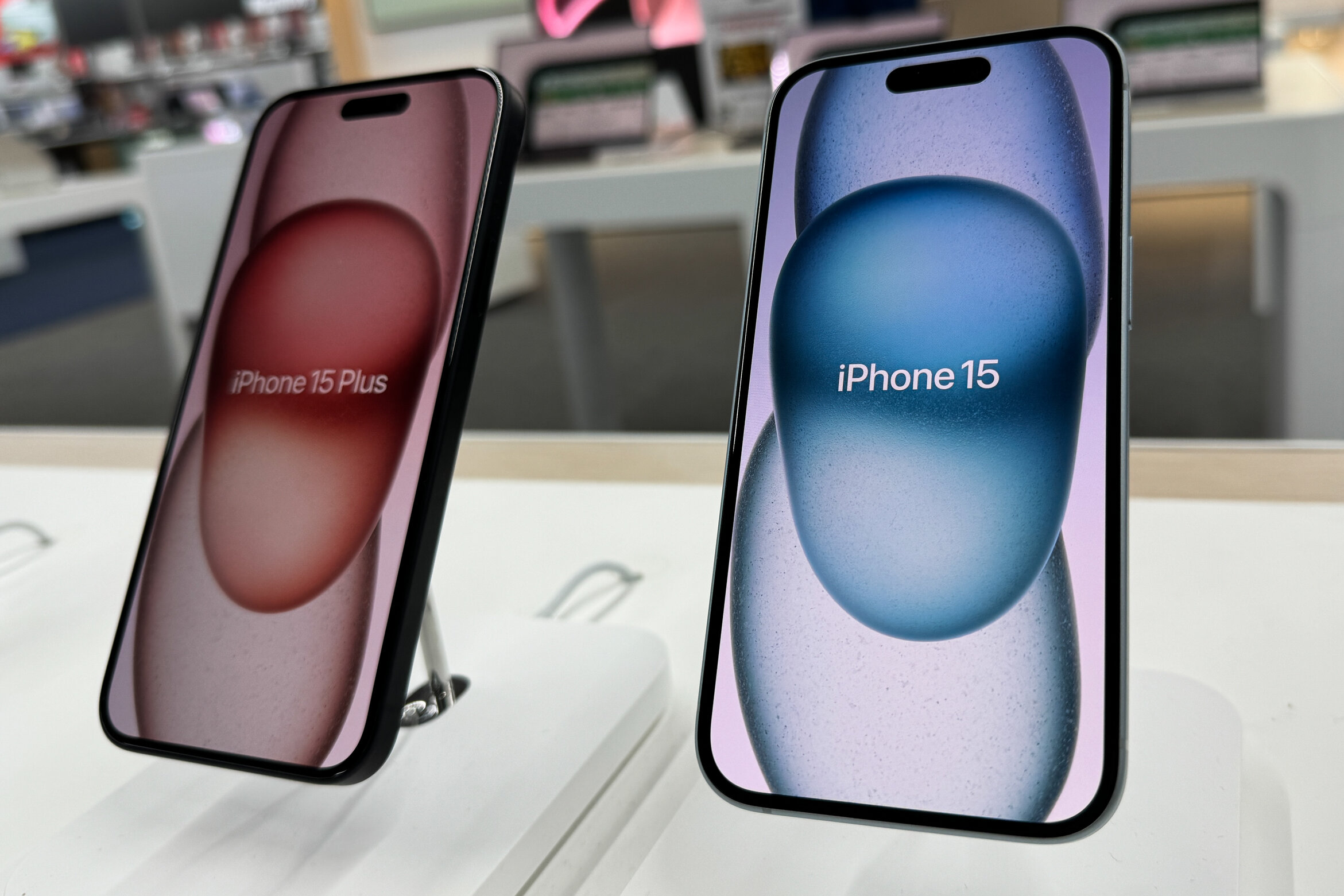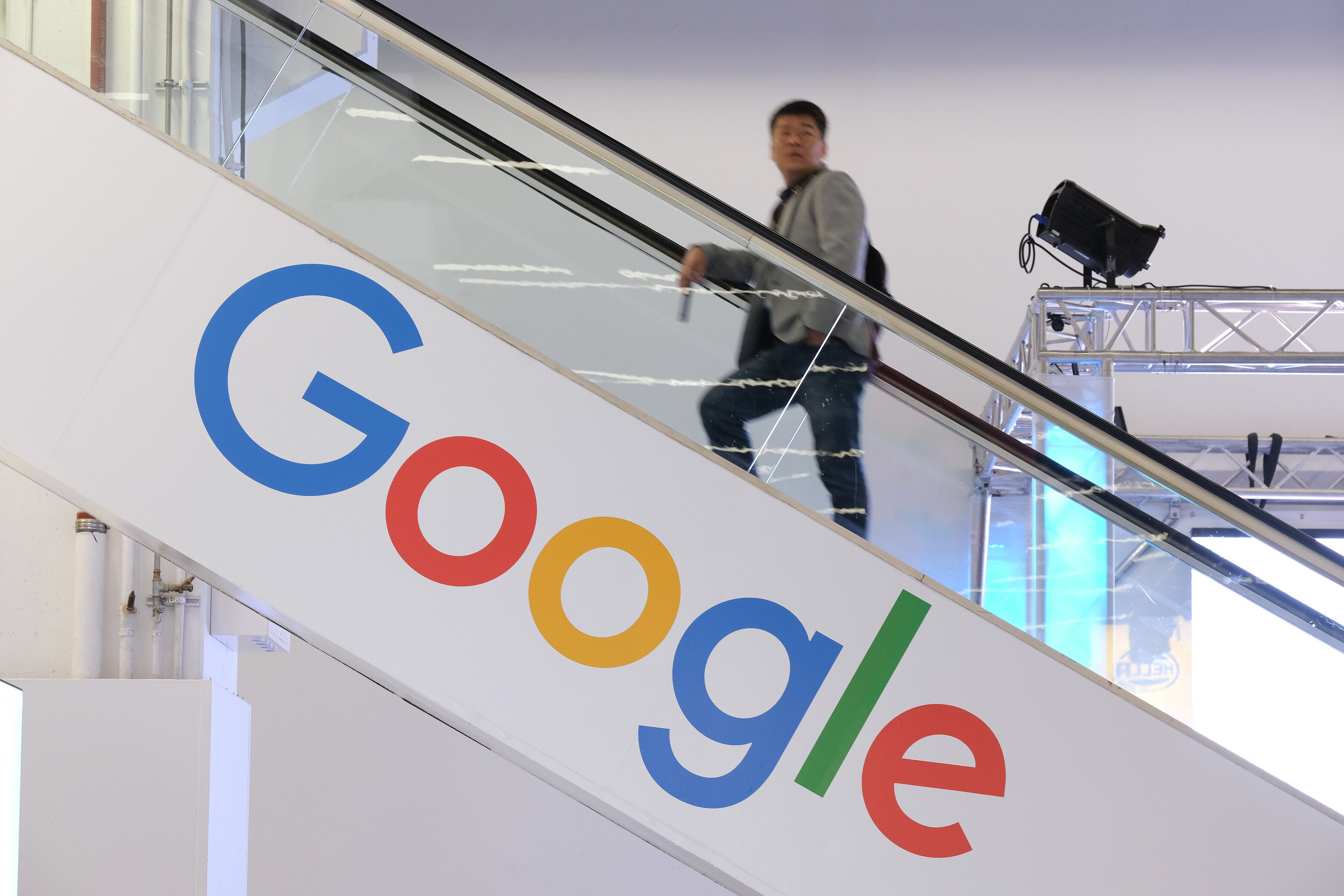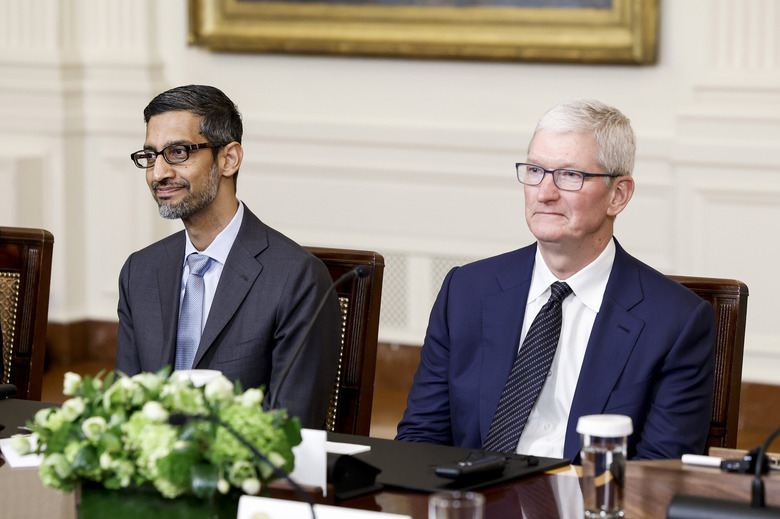Google Bringing Gemini AI To iPhone Is So Infuriating, But Not Surprising
Spend enough time in the online content creation business, and there's a good chance you'll eventually come to regard Google sort of like the alien race in Netflix's 3 Body Problem: Highly advanced, parasitic, and so formidable an adversary that almost nothing and no one can stop it. Which is another way of saying that, no, unlike my colleague Chris Smith I'm not exactly jumping for joy at the prospect of an Apple-Google partnership that brings Google's generative AI technology to the iPhone.
In fact, the mere idea of such a partnership reminds me of what I completely abhor about the iPhone maker under CEO Tim Cook — its tendency to preach about values like privacy and security, and to then act like any other company when someone waves cash in Apple's face or local laws command it to do this or that. But I'm getting ahead of myself, back to Gemini AI on iPhone.
To be clear, such a partnership between Apple and Google is only rumored to be the subject of preliminary talks at this point. Apple is said to be considering bringing Google Gemini to the iPhone, largely as a way to compensate for the fact that Apple is starting to look like an also-ran in the generative AI scramble.

To that last point, though, let's make one thing clear. It's Wall Street, it's investors, and it's Silicon Valley that think Apple is behind the 8-ball when it comes to AI. Get out of your bubble, though, and you know what you won't find? Real people, real iPhone users, clamoring that the one thing they wish they had on their device was a generative AI model. Sort of like how no one, at least where I live, ever uses Siri on the iPhone. Siri was definitely a cool feature when Apple launched it, but I basically haven't touched it at all since then.
Furthermore, there's a very nuanced understanding of the marketplace to be had here. "The world," per se, is not moving toward AI. Rather, what's actually happening is that AI is being thrust upon us, whether we like it or not. Which is why, for a start, I reject the premise that Apple is somehow lacking when it comes to AI right now. But, ok, let's assume for the sake of argument that it's worth shoring up the iPhone in this regard.
Google, of all companies, is the very last entity Apple should be thinking about partnering with. Which Google is Apple going to get into bed with here, exactly? Google, the monopolist that turned the open web into a hellscape of garbage? Google, the surveillance machine that's helped lull a generation into complacency over exchanging privacy for convenience? Or Google, the company whose legacy products have begun to show their age because the Googleplex has inexorably turned into a meritocracy-free zone?
What Google has done to its core search product alone — or, rather, the degree to which Google has allowed its search product to decay — ought to be enough to can CEO Sundar Pichai. But there's not a chance in hell that will ever happen. In 2010, Matt Taibbi used these words in an article for Rolling Stone magazine to describe Goldman Sachs, but today it's very much Google that's the "vampire squid wrapped around the face of humanity, relentlessly jamming its blood funnel into anything that smells like money."
Cook, for his part, hasn't been shy about addressing the many sins of such companies. "We believe the customer should be in control of their own information," Cook said during a speech back in 2015. "You might like these so-called free services, but we don't think they're worth having your email, your search history and now even your family photos data mined and sold off for God knows what advertising purpose. And we think some day, customers will see this for what it is."

Ah, but offer Apple some $18 billion to be the default search engine on the iPhone and — sure, Google, no problem; it's yours. Oh, you're putting ideologues at the vanguard of your AI effort? Let's talk, this could be the start of a beautiful friendship. Because not even a company with a market cap of more than $2 trillion is immune to the seductive power of money, it seems.
And, by the way, this extends far beyond Google.
Cook, in recent days, has been on another of his whistle-stop tours in China, talking up how great the country is — and, specifically, talking up what an important market China continues to be for Apple. Never mind the fact that it's run by a totalitarian regime and that the country is a strategic enemy of the US, one without a free market and where artists and journalists are jailed for the crime of independent thought.
Cook's visit certainly contradicts the words of US Commerce Secretary Gina Raimondo, who said during public remarks in 2023 that US business leaders keep telling her that "China is uninvestable." That the cost of doing business there is too high, as a result of raids, fines, updates to China's counterespionage law, and many other risks — to say nothing of the country's human rights abuses and the regime that requires onerous compromises from its business partners.
But Apple has to be there, you might say — otherwise, forgoing its benefits like cheap labor would mean the cost of iPhones would shoot sky-high! And you will have just proved my point.
Because your values aren't really values, if you only adhere to them so long as it makes financial sense to do so.
Apple also did a version of the same thing in Russia recently. Before he died under mysterious circumstances in an Arctic penal colony, Vladimir Putin critic and dissident politician Alexei Navalny was working on an app that would help people vote in the (now completed) Russian presidential election — that is to say, it would help people vote in such a way as to counter the Kremlin's lock on the foregone outcome.

Navalny's team finished that work after he died. Like clockwork, the Russian censor Roskomnadzor demanded that Apple remove the app — and the iPhone maker apparently did just that. "This app, conceived by Navalny before his tragic end, was designed to navigate the quagmire of 'choice' under Putin's regime," Navalny associate Ivan Zhdanov wrote on X/Twitter. "By deleting it, Apple shows compliance in stifling dissent, betraying those fighting for democracy."
I know, I know. Apple is in the market. Apple has to follow the local laws and regulations. But consider this: When's the last time you ever heard the good guys protest that "We had to do it, we were just following orders"?
I'll admit: All of this, to some people, probably amounts to an overly simplistic way of looking at the world. Still, I can't help feeling like the company that once lived by the code of "Think Different" has quietly replaced it with another idea that's just as simple and just as straightforward: Keep getting paid.
